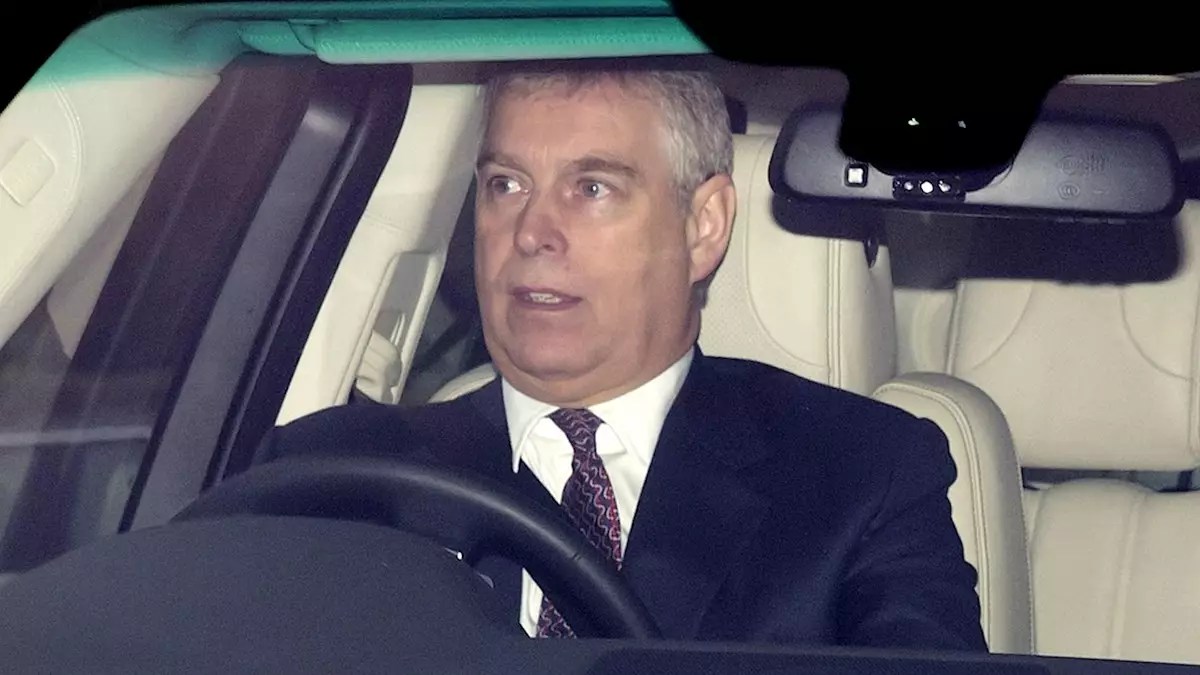The evolving dynamics within the British royal family often capture public interest, and the latest developments illustrate just how pronounced those tensions can be. As the festive season approaches, reports have confirmed that Prince Andrew, the Duke of York, has been deliberately excluded from King Charles’s pre-Christmas lunch—a gathering typically characterized by familial warmth and unity. This decision not only serves to highlight the ongoing rift within the royal family but also raises concerns about Prince Andrew’s future role (or lack thereof) within this historic institution.
King Charles’s pre-Christmas lunch at Buckingham Palace has become a cherished tradition, typically involving a broader circle of royal family members. This year, however, the exclusion of Andrew signifies a considerable shift in how the royal family intends to navigate its public image and internal relationships. The lunch, a usually private affair that begrudgingly opens its doors for photographs as family members arrive, has taken on a more poignant meaning in the context of Andrew’s recent controversies. While Royal engagements often denote unity, Andrew’s absence casts a long shadow over the proceedings, suggesting that healing is far from complete within the family.
The decision to leave Andrew out of this festive gathering arises shortly after revelations regarding his alleged association with a Chinese businessman embroiled in a spy scandal. The implications of such associations are not merely sensational; they have historical weight given the royal family’s long-standing need to maintain a dignified public facade. By distancing himself from controversies involving Andrew, King Charles appears to be taking a calculated step towards safeguarding the monarchy’s image.
The controversy surrounding Andrew is heightened by the resurfacing details about his connections with Yang Tengbo, a man believed to have been involved in espionage activities. Reports maintain that Yang was a close confidant of Andrew and engaged with him through official channels within the context of Andrew’s initiative, Pitch@Palace. While Andrew’s office has claimed he severed ties with Yang once suspicions were raised, the damage to his reputation and, by extension, the royal family is already substantial.
In the wake of these events, both Andrew and his ex-wife, Sarah, Duchess of York, have opted to spend the Christmas holidays at Royal Lodge in Windsor, away from the main family gathering. This choice signals a broader separation, as their daughters, Princess Beatrice and Princess Eugenie, will celebrate in separate homes with their in-laws for the first time. The schism that seems to have formed within the family raises critical questions about the future unity of the royal family, especially as they navigate scandal and public scrutiny.
Andrew’s downfall began in earnest after his ill-fated appearance on the BBC Newsnight program in 2019, where he addressed his connections to the late convicted sex offender Jeffrey Epstein. This disastrous interview led to his withdrawal from public engagements and roiled public opinion further. The royal family’s attempts to distance itself from Andrew’s questionable past signify a desire to maintain a line between established royal traditions and contemporary standards of accountability.
It is noteworthy that while the Duke of York no longer fulfills official royal duties, he still appears at notable events, albeit under close scrutiny. His appearances at events like King Charles’s coronation and public church services illustrate a complicated relationship with royal life, one marked by obligations yet shadowed by controversy. The internal family dynamics surrounding these public appearances become crucial in understanding the royal family’s current state of affairs.
As the royal family faces ongoing scrutiny and evolving public expectations, Prince Andrew’s absence from key events like the King’s Christmas gathering exemplifies the shifts that continue to reshape the monarchy. King Charles’s decisions, including who to include or exclude from family traditions, indicate a proactive approach to managing the complex legacy of royal responsibilities.
Ultimately, this familial exclusion foretells a future where public figures within the monarchy must navigate personal histories while embodying the ideals of a modern institution. With Andrew increasingly relegated to the sidelines, one has to ponder the implications such dynamics may have on not just individual royals, but the institution of the monarchy itself in an era demanding transparency and accountability.







Leave a Reply